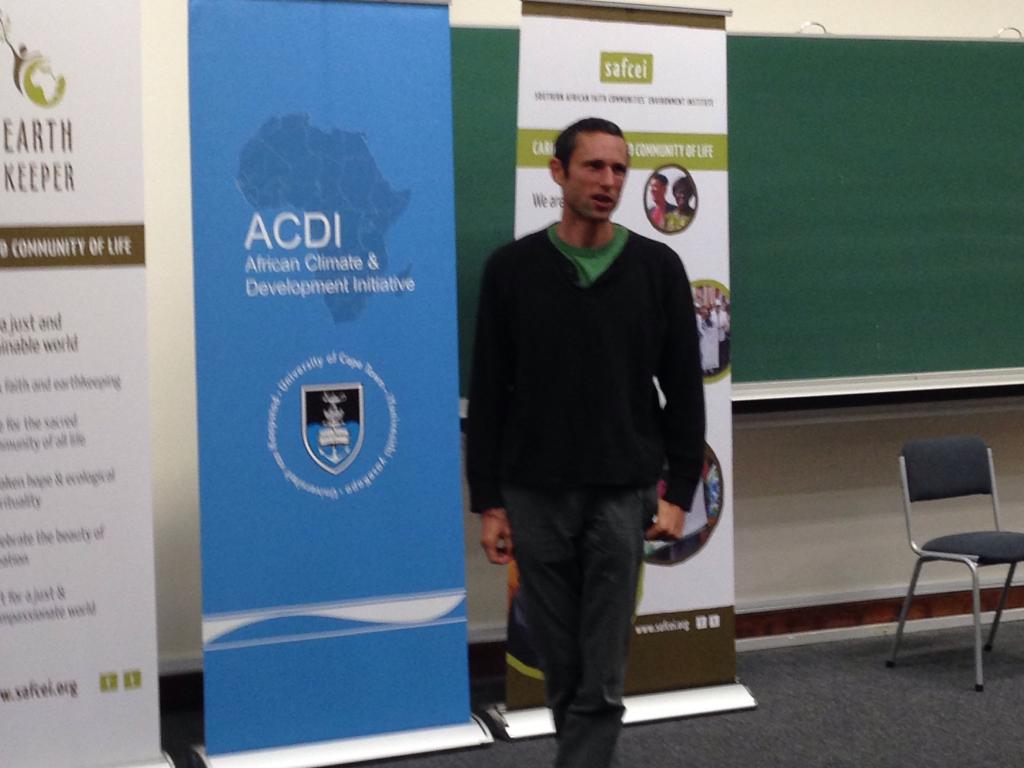Sacred Economics author resonates with UCT audience

On 4 September 2014 the author of Sacred Economics, Charles Eisenstein, gave an open lecture at the University of Cape Town (UCT). The Southern African Faith Communities’ Environmental Institute (SAFCEI) in collaboration with the African Climate & Development Initiative (ACDI) invited Eisenstein to talk about his book on transforming our current economic system into something that truly benefits all our people and our planet. Introduced by the “Green Bishop” Geoff Davies, whose comment on Sacred Economics was “at last, here are alternatives,” Eisenstein was eventually praised with a standing ovation at the end of the lecture.
According to Eisenstein the solutions offered in Sacred Economics speak to people because they stem from a transition in the story of how we define our civilisation. He refers to our society as one consisting of stories and storytelling and explained how we are moving from the old (essentially capitalist) story to one where young people “want to go into permaculture and social justice.” He problematises the issue of money, and how in our current society there never seems to be enough of it. In a world where enough food is produced to feed everyone, Eisenstein asks “why are the poor still hungry?” To which he answers “because they don’t have money.” According to Eisenstein changing this money system requires a change in our mindset. “We go to war against greed, but it’s just a symptom of the system, not the cause.” The root cause, the “old story”, is envisioned by Eisenstein to be replaced by a “new mythology” that essentially “no longer sees us separate from nature or each other.”
He believes we are currently in the midst of a really profound revolution, and that for some, our consciousness has moved on but society still institutionalises our "old story”. He then asked the question “how long can you maintain a different consciousness in an old system?”, which, by the audience’s response, seemed to resonate with their own concerns. Eisenstein admits that the solutions to our current economic system aren’t clear-cut or simple, but believes it will transform into something that promotes the well-being of the earth and its people, because “we cannot live in separation from what we are truly not.” Sacred Economics can be bought and read online, for more information visit Eisenstein's website.